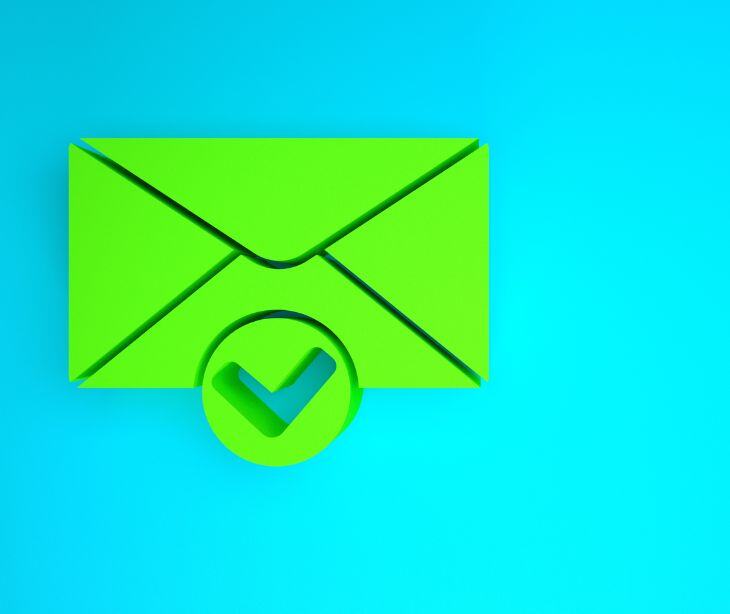
Every healthcare organization must be familiar with HIPAA and its regulations to safeguard patients' protected health information (PHI). This includes when sending or receiving information about patients over email. And moreover, when sending patients and prospective patients marketing email communication.
While securing email may seem difficult, HIPAA compliant email marketing is an easy way to reach diverse patient populations and improve patient outcomes.
Learn more: HIPAA compliant email marketing: What you need to know
Healthcare email marketing: what you need to know
Patients want to use and receive email communication and do engage with healthcare marketing emails. While it may seem daunting, HIPAA is not intended to restrict marketing communication. Rather, HIPAA rules and regulations provide a framework to do so properly and compliantly.
The HIPAA Privacy Rule regulates how practitioners use PHI for marketing. It defines marketing as "a communication about a product or service that encourages recipients of the communication to purchase or use the product or service." Additionally, it requires patient authorization before a covered entity and/or business associate uses PHI for marketing purposes.
There are many ways that healthcare providers can communicate with patients for marketing purposes. However, healthcare email marketing is the quickest and simplest method by far, which is why it is important to understand how to use HIPAA compliant email.
What does HIPAA compliant email mean?
HIPAA mandates privacy and security standards, necessitating the protection of PHI from unauthorized access or disclosure through email. The specific mix of email security protocols, however, depends on the needs and capabilities of each organization. Therefore, HIPAA safeguards are discussed in terms of addressable versus required.
The Security Rule requires covered entities and business associates to implement administrative, physical, and technical safeguards. Administrative safeguards focus on policies and procedures, physical safeguards on physical facilities, and technical safeguards on cybersecurity to effectively fortify ePHI (electronic PHI).
Additionally, the Privacy Rule requires that healthcare providers use and disclose the minimum necessary PHI. Email should contain only essential information and will depend on the sender and recipient. For example, a physician should not include a patient's complete medical history in an email to a nurse.
The idea is to restrict access to PHI and monitor how it is communicated. Knowing this, here are four best practices to ensure that marketing emails are always HIPAA compliant.
1. Use a HIPAA compliant email service
Healthcare organizations should have a HIPAA compliant email provider in place to send direct, secure, and encrypted marketing emails. Since PHI moves through email providers' systems, they should be considered business associates. All third-party vendors entrusted with PHI must sign business associate agreements (BAAs) by law.
Interestingly, the BAA requirement knocks out most email marketing vendors, as most won't sign one. Research HIPAA compliant email marketing options before choosing the best fit.
2. Get patient authorization to use healthcare email marketing
Covered entities need to obtain explicit, informed consent before sending marketing communications. When patients subscribe to an email list, a healthcare provider must:
- Inform patients that they will receive marketing emails
- Remind patients why they opted-in (e.g., related news, refill reminders, promotional gifts, and care coordination)
- Include the option to unsubscribe at any time
Consent involves a clear and easy-to-understand consent mechanism, such as a checkbox. This is so there is no mistake as to what a patient says yes (or no) to.
Learn more: Understanding opt-in and HIPAA compliant email marketing
3. Employ sound cybersecurity to protect an email and the PHI within
Marketing emails are beholden to HIPAA's cybersecurity email requirements. The current approach to email security must be layered to be effective.
|
Email storage/access security |
Inbound email security |
Outbound email security |
|
Access control |
Spam filters |
Encryption (in transit) |
|
Firewalls and gateways |
Anti-virus software |
Data loss prevention |
|
VPN networks |
Encryption (in transit) |
Addressee stop check |
|
Offline backup |
Display name spoof detection |
Outbound filters |
|
Encryption (at rest) |
Domain-based message authentication, reporting, and conformance |
Domain key identified mail |
In a nutshell, HIPAA requires that access to ePHI be restricted to authorized individuals. This means strong, complex passwords, multifactor authentication, and perimeter defenses. All possible access points must be locked.
4. Ensure policies and procedures are up to date and followed
HIPAA policies and procedures set the standards that everyone in an organization must follow. Policies state how organizations meet HIPAA requirements, while procedures provide specific actions. These policies and procedures are essential for ensuring that healthcare communication remains secure.
Email policies and procedures must outline the measures in place and how to stay HIPAA compliant. That means how to handle PHI during collection, storage, and transmission. Policy enforcement can be straightforward if the guidelines present clear and backed-up information.
The first part of enforcing email rules is verifying that employees understand them with up-to-date employee awareness training. Second, there must be a corrective plan in place for breaches of policy and procedure. And third, enforcing goes further than training and strengthening. There is also monitoring, reviewing, updating, and retraining how employees use and interpret policies and procedures.
Reduce costs with email marketing
Email is a convenient and efficient way to communicate in the healthcare industry. HIPAA compliant healthcare email marketing can reduce costs and improve patient health outcomes. However, it also poses risks when strong HIPAA compliant measures aren't employed.
By following email HIPAA guidelines and implementing best practices, healthcare organizations reduce the dangers of breaches. And keep patients informed and interested. Although you might see HIPAA as a roadblock to implementing an email marketing strategy, it doesn't have to be.
Yes, healthcare email marketing must be HIPAA compliant. But knowing this and what HIPAA does for organizations and patients should make implementing security measures easier.
Subscribe to Paubox Weekly
Every Friday we'll bring you the most important news from Paubox. Our aim is to make you smarter, faster.



